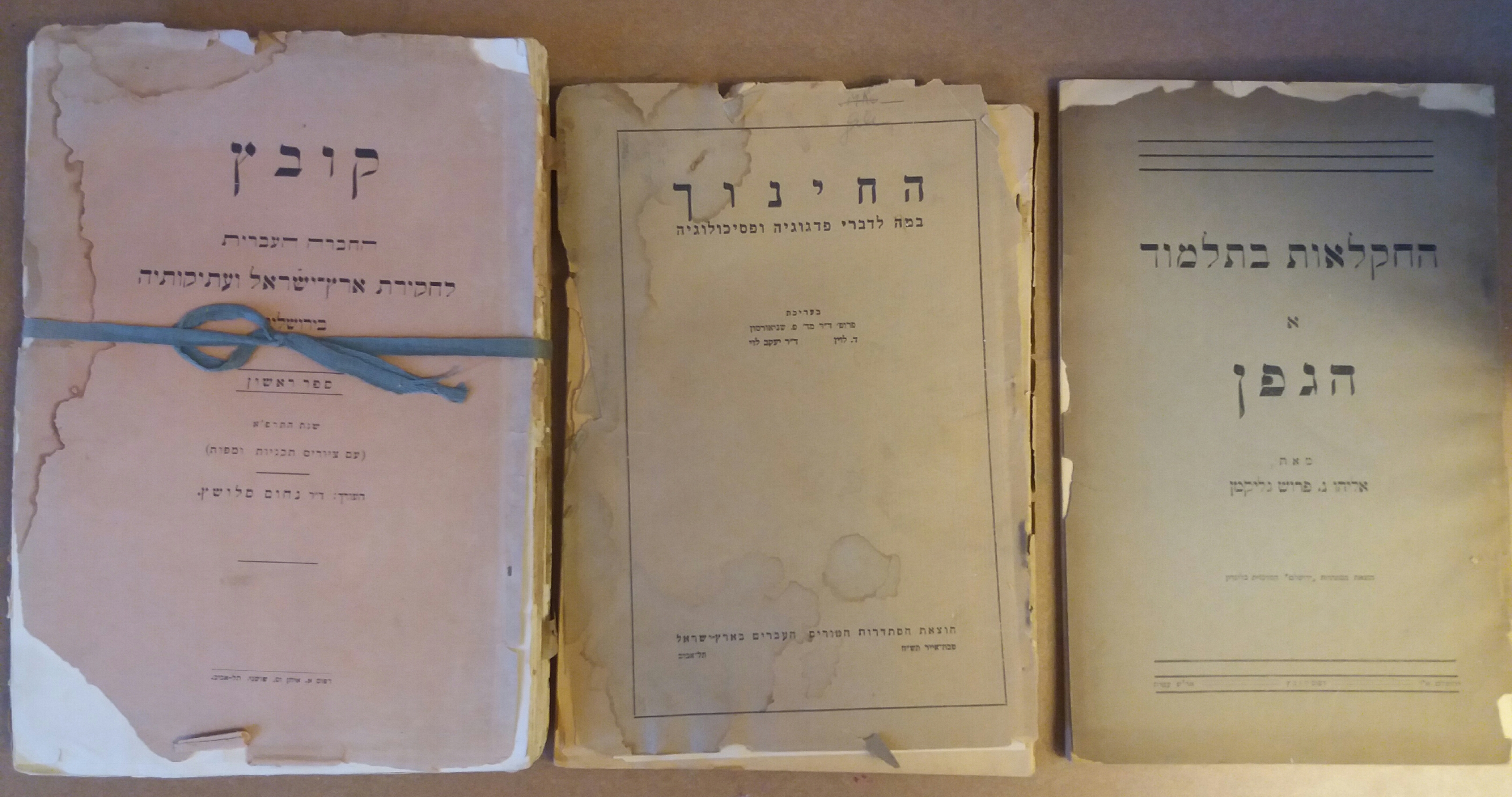 Here’s the story behind these crumbling old Hebrew booklets. A grounds or maintenance staff person at UAlbany saw them in the trash. He couldn’t read Hebrew but knew enough to know that they probably don’t belong in the garbage. He reached out to the Archives Department of the University Library, but didn’t hear back from them. He was walking through Campus Center and saw Avi S. sitting there with his kippah on, so he figured – ah, this is someone who’d know what to do with something like this, so he gave them to Avi, and Avi gave them to me. And I’d like to use these three books to share with you a meaningful pre-Passover message.
Here’s the story behind these crumbling old Hebrew booklets. A grounds or maintenance staff person at UAlbany saw them in the trash. He couldn’t read Hebrew but knew enough to know that they probably don’t belong in the garbage. He reached out to the Archives Department of the University Library, but didn’t hear back from them. He was walking through Campus Center and saw Avi S. sitting there with his kippah on, so he figured – ah, this is someone who’d know what to do with something like this, so he gave them to Avi, and Avi gave them to me. And I’d like to use these three books to share with you a meaningful pre-Passover message.
These three books date back to early or mid-twentieth century Israel, both pre-establishment of the modern state, and just afterward. The middle book pictured here is titled “HaChinuch” a book on the latest insights and methods in education, and is authored by a distant cousin of the Lubavitcher Rebbe, named Professor Fishel Schneersohn. Oddly enough, back in my Yeshiva years, I read a novel by this same author. The book on the right is part of a set on “Agriculture in the Talmud” and this particular booklet is on grapevines and vineyards. The booklet on the left is part of a series on studies on Antiquities in the Land of Israel (actually called Palestine then when it was published) and has a bunch of scholarly essays on biblical locations and burial sites and modern exploration and studies of them.
What’s common to all these three booklets? Right now they are all brittle and worn, yellowed from age and crumble at the touch. Back when they were written? They were cutting-edge, new-age thinking. The education book is about the latest insights and methods, the vines and vineyard book is a nod to Israel’s fledgling wine industry after years in the diaspora when Jews often couldn’t own and farm their own land, the antiquities book is eager to apply the latest archaeological wisdom and science to some of the oldest places on the planet. Anyone who knows of Israeli history of these pre-and early-modern state years, knows how those early pioneers were forward-thinking, tired of their people’s past, eager to thrown off old burdens and begin anew…
Yet – all these three books are tied and intertwined with the Jewish past. The new agriculture is rooted in the old Talmud texts, the newest wisdom on education interspersed with Jewish teachings of the ages, the book of antiquities research seeks to reconnect with the history instead of run from it. What’s common to all these three books is how interconnected new and old are, how the present and future are dependent on the past, how we move forward by staying connected with that which came before us.
This coming week we will sit down to Passover Seders, here at Shabbos House, at home with your families, traveling or wherever you may be. The Passover Seder celebrates this deeply rootedness of the Jewish People. No matter where we are headed, no matter where we are going, we ought to find ways to connect with our past, with our heritage, our history, our people. As much as we change and as new as things get, may we feel as a link in a great golden chain, may we feel this connectedness and rootedness.
May we never lose touch!
